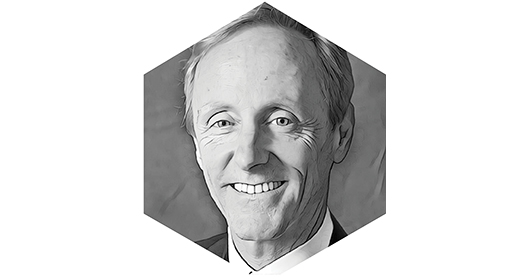Josh Bersin Brings The Future of Work to “Level Up” HR Conference + Tradeshow
The world of work is rapidly changing as we deal with new technologies, AI, generational changes, and a more interconnected organization. What are HR’s mandates in this new world? Moreover, how can HR add value in organization design, driving new models of leadership, driving engagement, and improving organizational culture?
Coming to the 55th Annual HR Conference + Tradeshow on May 3, 2017, Josh Bersin of Bersin by Deloitte, Deloitte Consulting LLP, will bring the research to explain the mandates for HR in the coming year with “The Future of Work: Ways HR Should Adapt.”
Founding Bersin in 2001 to provide research and advisory services focused on corporate learning, he and is responsible for Bersin by Deloitte, Deloitte Consulting LLP’s long term strategy and market eminence. A frequent speaker at industry events, Josh, a popular blogger for forbes.com, has been a columnist for Chief Learning Officer magazine for a decade, and is quoted often on talent management topics by key media including: Harvard Business Review, The Wall Street Journal, Bloomberg, as well as on air by BBC Radio, CBS Radio and National Public Radio. With a B.S. in Engineering from Cornell University, an M.S. in Engineering from Stanford University, he secured his MBA from the Haas School of Business at the University of California, Berkeley.
Given the pace of change in the last decade, how do you see this changing the mandate of HR professionals?
I have never seen such a pace of change in HR. Today’s HR professionals should understand the increasingly digital, always-on nature of work; they should understand the impact of 5 generations of workers and their varying needs; they should understand new organization models based on teams; and they should become sensitized to issues like citizenship, inclusion, and new models of leadership.
While many companies are doing well and the economy is growing in most countries, data shows that employees are stressed more than ever, so it’s important to focus HR on “making work life better” and “making work more productive,” not just “rolling out HR programs.” This means practicing design thinking, using far less complex program designs, and learning to use digital technology in new ways. Wellbeing, simplification, and feedback are also new mantras in HR – while we continue to have to “keep the lights on” with solid payroll and benefits administration. Lots of new things to do.
What does your research show about where business leaders think HR professionals’ priorities should be focused?
I’d say the #1 topic for HR today is what we now call the “Employee Experience.” This brings together topics like culture, engagement, workplace management, benefits, and wellness into a complete picture. We developed a framework for this (we call it Simply Irresistible) and it identifies 20 different elements of work that HR should manage. If you build a great employee experience business can thrive; if it’s unproductive or negative, customer service and innovation suffer.
This is a new domain for HR, but it’s been done before. We can borrow most of the ideas which our marketing counterparts have developed for “customer experience” including pulse surveys, net-promoter, segmentation, personas, and lots of interviews and design thinking.
What do you see as the greatest challenge facing HR professionals at present?
The biggest issue is that we do “too much.” We tend to build too many complex HR programs and frankly people don’t have time to do them all. I wrote an article called “the art of doing less” that explains this more, but I’d suggest you look at all your HR programs and figure out if you can throw away half of them, focusing on the most important things. Remember also that our job is to empower and enable managers, not do the managing for them – so lots of what we do could slow people down and get in the way.
What does your research reveal about HR’s ability to generate tangible value and ROI?
HR adds value in hundreds of ways, so this should never be an issue. Do you have people in your company? Are they trained well? Do they work together? Do they help customers? Do leaders take care of them? Do you have a way of differentiating performance? Do you fix people problems quickly? These are all the domain of HR, to say nothing of having great systems, keeping track of data, paying people on time, and giving them good benefits. No company can run effectively without HR, despite articles written on that topic.
Looking ahead and around the curve, what topics should be front of mind for HR professionals?
I think the #1 thing is to “think digital.” Think about what you can do to make HR integrated into the business, make people practices fast and easy, study your workforce, and use digital tools whenever you can. Much of what HR does is still people centric, but more and more of our work life revolves around data, so we need to get very good at it. Our research on “digital HR” and “the digital world of work” explains this, and I look forward to explaining more when I come visit.
Josh Bersin is a keynote speaker at the HRMA Conference + Tradeshow 2017 in Vancouver. His session The Future of Work: Ways HR Should Adapt is on Wednesday, May 3, 2017. For more information on this and other sessions, please visit hrma.ca/conference.









